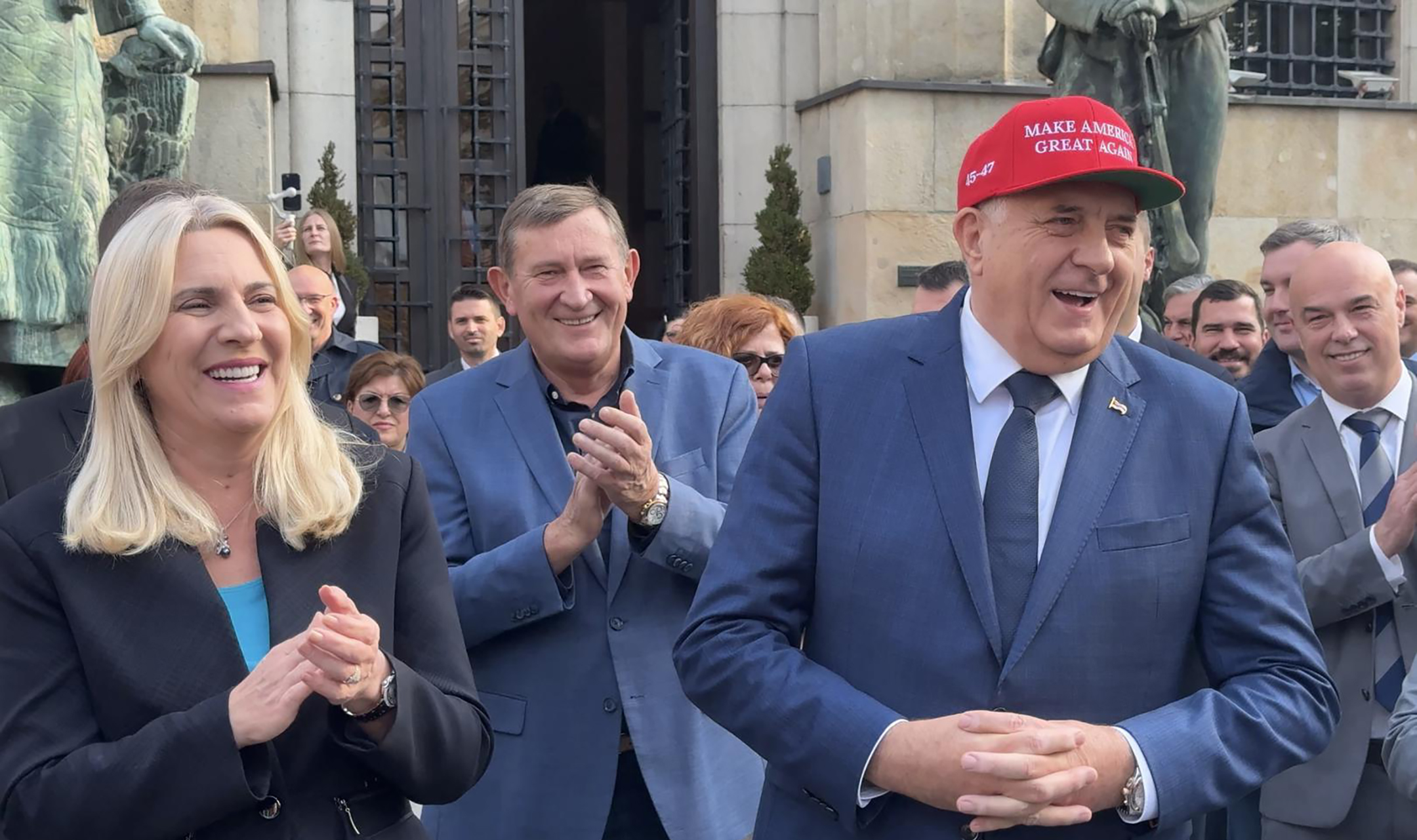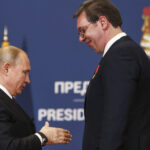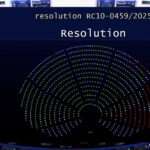The political crisis that had lasted in Bosnia and Herzegovina throughout the year, threatening to escalate into a security crisis not only in BiH but throughout the region, suddenly came to an end. Banja Luka, unexpectedly for many, put an end to the confrontation with Sarajevo by taking a step back: in mid-October, the National Assembly of Republika Srpska (NARS) annulled a number of controversial laws and decrees that violated the constitutional order of Bosnia and Herzegovina, and also officially recognized that Milorad Dodik is no longer the president of RS.
But why did this happen, and what should be expected next?
A Step Back
The main event confirming the political reversal of RS was the annulment by the National Assembly of Republika Srpska of several disputed laws and decrees adopted last year.
At a special session of NARS held on October 18, the parliamentary majority, led by the Alliance of Independent Social Democrats (SNSD), repealed the Law on Immovable Property, the Law on Non-Implementation of the Decisions of the Constitutional Court of Bosnia and Herzegovina, the Law on Elections of RS, the Law on Non-Implementation of the Law on the Prohibition of the Activity of Unconstitutional Institutions of Bosnia and Herzegovina, amendments to the Criminal Code of RS, and the Law on the High Judicial and Prosecutorial Council of RS. In addition, the Resolution on Information regarding the Collapse of the Legal Order in Bosnia and Herzegovina and the Possible Violation of the Dayton Agreement was also repealed.
All these documents were instruments of the secessionist policy of RS leaders, aimed at the institutional isolation of RS from the central authorities of BiH, the non-recognition of the High Representative of the international community, and the disregard of his decisions.
In addition, during the same session, NARS took another significant step that put an end to the conflict around Milorad Dodik’s presidency: the parliament officially appointed Ana Trišić-Babić as acting president of RS. Although she is considered “Dodik’s person,” the very fact of this appointment indicates the final resolution of the issue of terminating Dodik’s presidential mandate.
What About the Referendum?
Let us recall that the National Assembly of Republika Srpska, in response to Dodik’s removal from the presidency, adopted a decision to hold a referendum on this issue on October 25. The referendum question reads: “Do you accept the decisions of the unelected foreigner Christian Schmidt and the unconstitutional decisions of the Court of Bosnia and Herzegovina made against the President of Republika Srpska, as well as the decisions of the Central Election Commission on the cancellation of the presidential mandate of Milorad Dodik, President of the Serb Republic?” Dodik hoped that the referendum would say a loud “no” to the decision on his removal and to foreign interference in RS affairs, and that it would become a “rehearsal” for the “main referendum” on the independence of Republika Srpska. Dodik’s idea was actively promoted by Russian media.
“Will you ultimately abandon the referendum?” journalists asked Dodik after NARS annulled the disputed laws. “It must be held,” he said. According to him, “it would be best for the referendum to take place on January 9,” that is, on the Day of Republika Srpska.
Pro-Russian politician Aleksandar Vulin, a former member of the Serbian government and currently a senator of Republika Srpska, stated: “There must be no abandonment of the referendum, and if the referendum cannot be held within the prescribed time, it should be held as soon as possible, and this should be stated publicly, without seeking excuses for failure to act.” It is not excluded that this is also Moscow’s position.
However, according to observers, after the annulment of a series of laws and the recognition that Dodik is no longer president, the referendum scheduled in Republika Srpska for October 25 has lost its meaning.
Victory and Defeat
Politicians from completely opposite camps regarded the NARS decision to repeal the disputed laws and other documents as a victory for the state of Bosnia and Herzegovina and a defeat for Dodik’s policy.
“Pro-Russian separatism has suffered a crushing defeat,” stated the Social Democratic Party of Bosnia and Herzegovina (SDP BiH). “Today’s session of the National Assembly of Republika Srpska is a historic event marking the capitulation of Milorad Dodik and of the separatist, pro-Russian policy. The state of Bosnia and Herzegovina and its institutions have won another important battle, showing that there is no one more important or stronger than the state,” the party’s statement of October 18 reads.
Vulin also spoke of defeat. He said that he “does not dispute the legitimacy or legality of the National Assembly of RS changing its views and positions,” but “must say” that “the taste of yesterday’s defeat will not fade for a long time, and I expect the government in Republika Srpska to honestly admit to the Serbs that the policy of fighting to preserve the Dayton position of RS has suffered a heavy defeat.”
Milorad Dodik himself tried to present the situation not as a retreat or, even less, a defeat, but as an element of a long-term strategy. He stated that Republika Srpska is on the right path to victory and that the events in the National Assembly of RS should be understood as part of these efforts. “Our policy remains unchanged. BiH is unstable. The only way to preserve lasting peace and stability here, which we care about, is for BiH to be organized according to the will of the peoples that constitute it,” Dodik emphasized.
An Outstretched Hand
However, in fact, the decision of NARS of October 18 signifies the renunciation by the current leaders of Republika Srpska of the course toward open political and institutional confrontation with the central authorities of BiH and with the international community. The policy of RS of the “Dodik era,” which was based on constant conflict with official Sarajevo and the escalation of tension, has at least been put on hold.
“The National Assembly of Republika Srpska withdraws these laws, and the deputies of the parliamentary majority will know how to explain to our people why we are doing this. We adopted them as a reaction to Christian Schmidt and the abuse of institutions; we are withdrawing them as an outstretched hand to eliminate abuses and serious deviations. Who will accept this hand and who will reject it does not depend on us. It depends only on us to ensure that we never again allow injustice and the undermining of our constitutional rights,” wrote member of the Presidency of BiH Željka Cvijanović on the social network X.
“If in America they are eliminating the harmful consequences of the Biden era, why can’t we do the same in Bosnia and Herzegovina? If the actions of that administration were bad for the American people, why not say that they were bad for the Serb people?
…Because of the damage they caused us, we hoped for and rejoiced at Trump’s victory. And we did everything we could to contribute to this through the American-Serbian community. We have the right to believe that everything will work out, because Donald Trump is the president of America. We have the opportunity to show that Republika Srpska is a reliable partner,” Cvijanović noted.
As a response to its outstretched hand, Republika Srpska expects steps to meet the demands of the Serbs. This could include the annulment of decisions of official Sarajevo and of the High Representative that do not correspond to the interests of Serbs in BiH, or even the withdrawal of Christian Schmidt. At least Dodik has already announced Schmidt’s resignation in the near future.
The “Washington Plan”
Experts are confident that the latest developments in RS politics are the result of the implementation of the “American de-escalation plan” and behind-the-scenes agreements between the leaders of the Bosnian Serbs and the American administration.
The “Washington Plan” allegedly provided for the unblocking of state institutions by RS, the return of RS to the constitutional framework of BiH, and the withdrawal of the notorious and pro-Russian leader of the Bosnian Serbs from active political activity.
In return, Washington allegedly promised to stop criminal prosecution of Dodik, gradually lift sanctions from his entourage (this process has already begun), and later from him personally, and to implement economic projects in RS (there is talk of investments in mineral extraction). It is possible that the plan also included discussions about the future of the High Representative and the potential annulment of his decisions and other rulings unfavorable to RS.
Accordingly, Banja Luka’s refusal of the agreement could have implied the opposite — increased pressure from the United States and the West in general on Dodik and his circle, the introduction of new restrictive measures against politicians from RS, the blocking of investment projects involving Western investors, and so on.
The vote in NARS on October 18 may serve as evidence that this hypothetical American plan has already begun to be implemented.
One could conclude that the current sensational reversal of Republika Srpska is a geopolitical victory for the United States, as a result of which Russian influence in the Western Balkans is decreasing. However, in Sarajevo it is not excluded that in this case there is a situational agreement (deal) between Washington and Moscow.
Nevertheless, a pause in confrontation does not equal final peace. Dodik’s rhetoric, the expectation of concessions from the West, as well as the preservation of pro-Russian positions among part of the RS elite, indicate that the conflict may return — in a new form, with new players. Further developments will depend on the outcome of the internal political struggle in RS, the position of the international community, and the ability of BiH to seize the moment for consolidation.
CWBS Analytical Group



